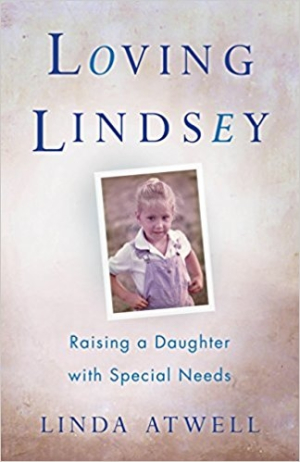Loving Lindsey
Raising a Daughter with Special Needs
Loving Lindsey is an unwavering and valuable motherhood memoir about the way intellectual disabilities manifest in daily life and affect relationships.
Linda Atwell’s motherhood memoir Loving Lindsey is a close portrayal of navigating the independence and dependence of one’s children—in this case, of an adult daughter with intellectual disabilities. Themes of love, loss, the pain of misunderstanding, and separation, as well as the joys of living in the moment with those you care about, prevail.
Atwell’s story begins when her nineteen-year-old daughter, Lindsey, begins to assert her independence. She defies her family and chooses her own companions, but her choices result in separation from her mother, father, and brother.
Powerful flashback moments fill in the important events of Lindsey’s childhood, including more specific information about her early symptoms and diagnoses. Lindsey’s early adulthood and her parents’ adjustment to having an empty nest are the main focus, with vivid recollections of early days with Lindsey used to explain some of the behaviors she exhibits later, like her aversion to the new schedules and social norms involved with international travel. Such memories are delivered in a natural way.
Moments of raw honesty reveal tensions, like when Lindsey lashes out in anger and dismissal at her parents’ attempts at reconciliation. Atwell shows herself to be neither perfectly restrained in her involvement with Lindsey nor perfectly connected to Lindsey’s needs. When Lindsey escalates from disappointment to fury because she cannot have her way, Atwell’s empathetic tone shows how tough the situation is both for Lindsey and for those who care about her.
Action is slow, but the book still reads steadily. Long stretches of time are expertly navigated, with the events of months truncated down to those actually relevant to the tale. Because a doctor recommended at one point that Lindsey would someday need to live in a group home, every movement toward or away from her successful independent living also ably invokes the high stakes of her choices for her future.
Atwell’s mounting sense of sadness and feelings of separation are conveyed in a sometimes monotonous way, though there is realism in her helplessness in the face of Lindsey’s prolonged distance. Language is concise and clear, and dialogue is rendered in a compelling manner, even providing moments of humor, like when Lindsey says, “Stuff you say just goes out one ear and through the other.” Both Atwell and Lindsey are thoroughly developed, if others in their lives—including Atwell’s husband—are a less fleshed-out presence.
The text’s attention to detail in moments of mother-daughter interaction—from capturing Lindsey’s close proximity during their conversations to relating how Lindsey’s physical tremors corresponded to her level of agitation—conveys much meaning and emotion in a concise way. After many dramatic events, the book’s gentle resolution is emotionally satisfying.
Loving Lindsey is an unwavering and valuable motherhood memoir about the way intellectual disabilities manifest in daily life and affect relationships.
Reviewed by
Laura Leavitt
Disclosure: This article is not an endorsement, but a review. The publisher of this book provided free copies of the book and paid a small fee to have their book reviewed by a professional reviewer. Foreword Reviews and Clarion Reviews make no guarantee that the publisher will receive a positive review. Foreword Magazine, Inc. is disclosing this in accordance with the Federal Trade Commission’s 16 CFR, Part 255.

